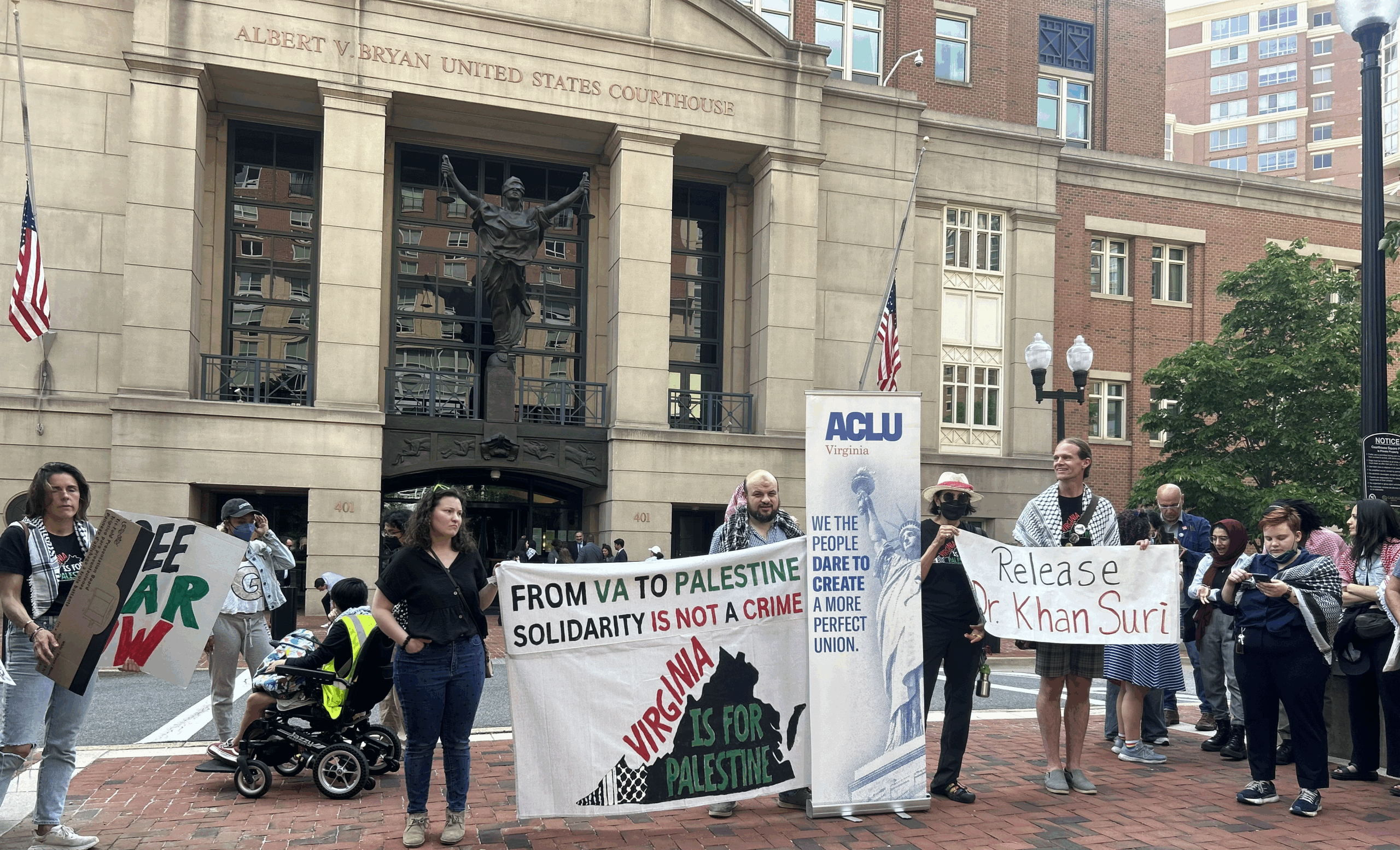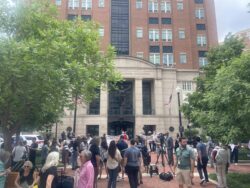Detained Georgetown postdoctoral researcher Dr. Badar Khan Suri’s case will stay in Virginia, federal judge Patricia Tolliver Giles ruled on May 6. Giles denied the federal government’s motion to transfer Khan Suri’s trial to Texas, where he is currently detained.
Additionally, Giles ruled that the Eastern District of Virginia Court will hear Khan Suri’s motion to be released on bond and return to the district. Giles laid out her reasoning in a memorandum opinion, also released on May 6.
The ruling comes five days after the initial hearing regarding jurisdiction over a petition for habeas corpus—a process to determine the legality of a detained person’s detention—filed by Khan Suri’s legal team, alleging that the federal government had violated Khan Suri’s First and Fifth Amendment rights. At the May 1 hearing, Giles had directed both parties to submit additional information and thus adjourned the hearing without a ruling.
Khan Suri is a postdoctoral fellow at Georgetown’s Alwaleed Bin Talal Center for Muslim-Christian Understanding. DHS officials detained Khan Suri, an Indian national who is legally in the U.S. through an exchange visa, outside his home in Rosslyn, Virginia on March 17.
The federal government argued on May 1 that the Virginia court lacked jurisdiction to hear Khan Suri’s trial because his legal team filed the petition at 5:59 p.m. EDT on March 18, when the Department of Homeland Security had already taken him outside of Virginia. Additionally, the government argues that the Northern District of Texas should hear Khan Suri’s trial because the address indicated on the notice to appear (NTA) is in Northern Texas. Khan Suri was in Louisiana, not Texas, when the petition was filed according to Giles’ memo.
Giles explained in her opinion that the Eastern District of Virginia Court maintains jurisdiction because Khan Suri’s case involves “extraordinary circumstances,” which include deliberate transfers to avoid jurisdiction and cases where location of a petitioner is unknown to their counsel.
Giles cited a few notable extraordinary cases such as Braden v. 30th Judicial Circuit Court of Kentucky and Strait v. Laird.
She also wrote that the Supreme Court Case Rumsfeld v. Padilla set a precedent for the so-called “unknown custodian” exception, which applies when specific details about where a detainee is held or physically located are unclear. The rule, Giles wrote, states that when a petitioner “is held in an undisclosed location by an unknown custodian, it is impossible to apply the immediate custodian and district of confinement rules.”
Giles quoted former Supreme Court Justice Anthony Kennedy’s concurring opinion in Rumsfeld v. Padilla, where he argued that in unknown custodian cases, jurisdiction should be set in the territory the petitioner was removed from.
“If there is an indication that the Government’s purpose in removing a prisoner were to make it difficult for his lawyer to know where the habeas petition should be filed, or where the Government was not forthcoming with respect to the identity of the custodian and the place of detention… habeas jurisdiction would be in the district court from whose territory the petitioner had been removed,” Kennedy wrote, as quoted in Giles opinion.
The opinion wrote that Khan Suri’s counsel sought more information about his arrest throughout March 18, but only knew of his detention in Farmville Detention Center—a Virginia U.S. Immigration and Customs Enforcement (ICE) facility.
“In this timeframe, it is not clear how any other diligent attorney could have known that Petitioner was in Louisiana at the time he filed the petition,” Giles wrote.
Even if Khan Suri’s counsel were to have known that he was in Louisiana at the time of the petition, Giles argues the unknown custodian exception would apply based on the timing of the petition and Khan Suri reaching the Louisiana facility. Giles wrote that since Khan Suri was not “booked,” or registered, into his Louisiana facility until 6:42 p.m. EDT, it was not known at the time of the petition filing who his immediate custodian was or if he had one at all.
Furthermore, Giles wrote that the federal government’s supplemental responses to her questions at the May 1 hearing were “non-responsive” and “riddled with inconsistencies.”
In particular, Giles pointed out that the federal government had argued that Khan Suri was removed from Farmville Detention Center in Virginia due to potential overcrowding in the state’s detention facilities. However, there were available beds at Farmville which the government argued were “reserved for other arrests.” The DHS transferred Khan Suri to several other facilities, eventually landing in the Prairieland Detention Center in Texas. The facility was overcrowded and housed at least 50 people despite it only having a 36-person capacity, which forced Khan Suri to sleep on a plastic cot on the floor, Giles wrote.
Giles argued that Khan Suri’s removal and transfer to other states was not about bed space but was instead to move him to a government-chosen jurisdiction and make it more difficult for his lawyers to advocate for him. Furthermore, she writes that the federal government’s transfer was to deliberately “forum shop,” referring to the practice of moving a legal case to a court that would be more likely to give a favorable judgment.
“The Court declines to transfer Dr. Khan Suri’s petition to the Western District of Louisiana for the additional reason that doing so would ratify an attempt at forum shopping,” Giles wrote. “Just as a habeas petitioner should not be permitted to forum shop, neither should the United States Government.”
Giles’ ruling prohibits the government from forum shopping and asserts that Khan Suri’s case to conduct the hearing in Virginia is not forum shopping, but legally sound based on the unknown custodian rule.
Furthermore, Giles wrote about the legal harms to Khan Suri that would arise from his hearing being moved to Louisiana or Texas.
“Forcing Petitioner to litigate his case in Louisiana or Texas for that matter, many states away from his lawyers and family, would meaningfully deprive him of their ability to aid in his representation for the duration of these habeas proceedings,” Giles wrote.
Following this ruling, the Eastern District Court of Virginia is set to hear the motion to return Khan Suri to Virginia and release him on bond at 10 a.m. on May 14.






